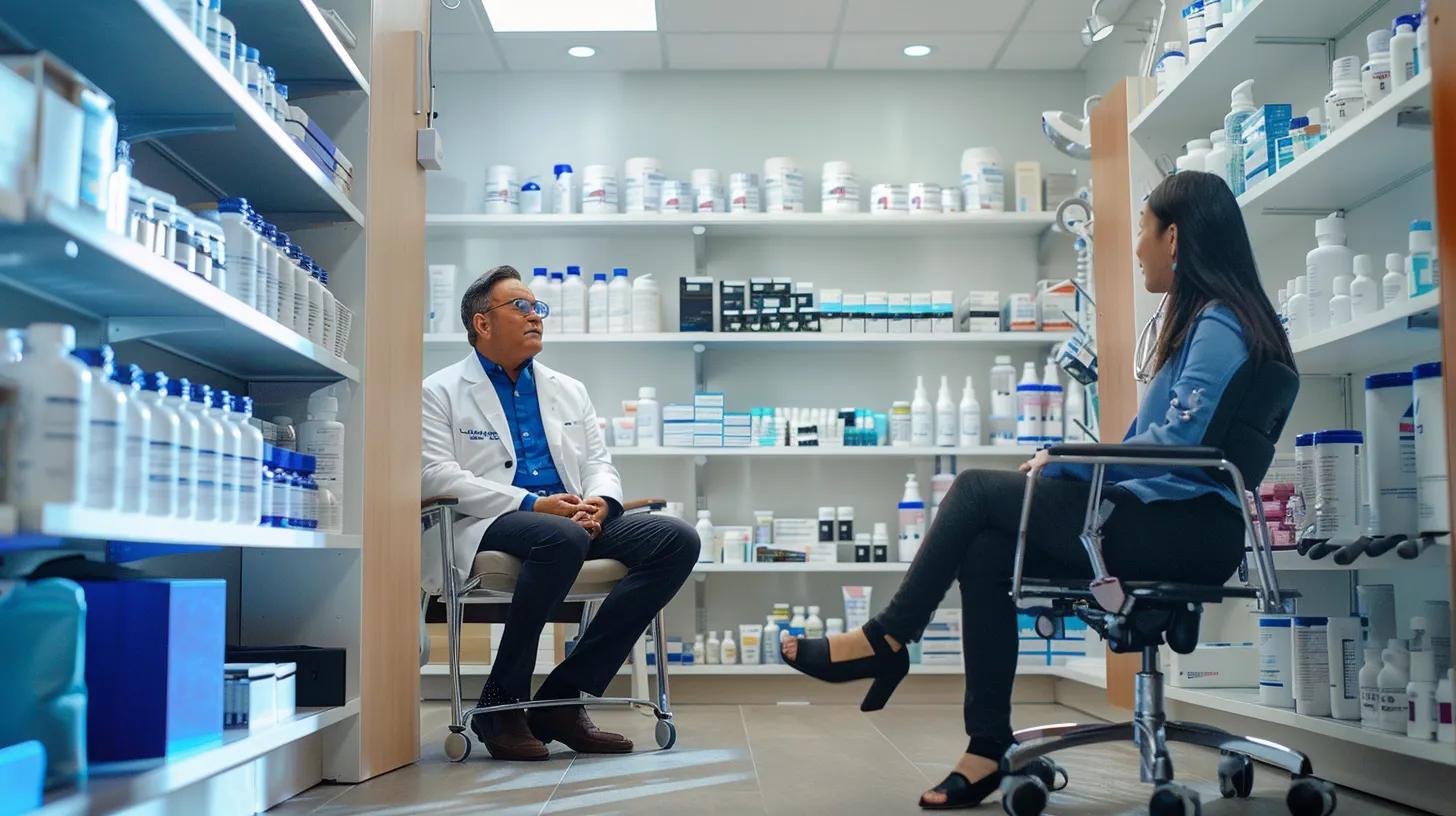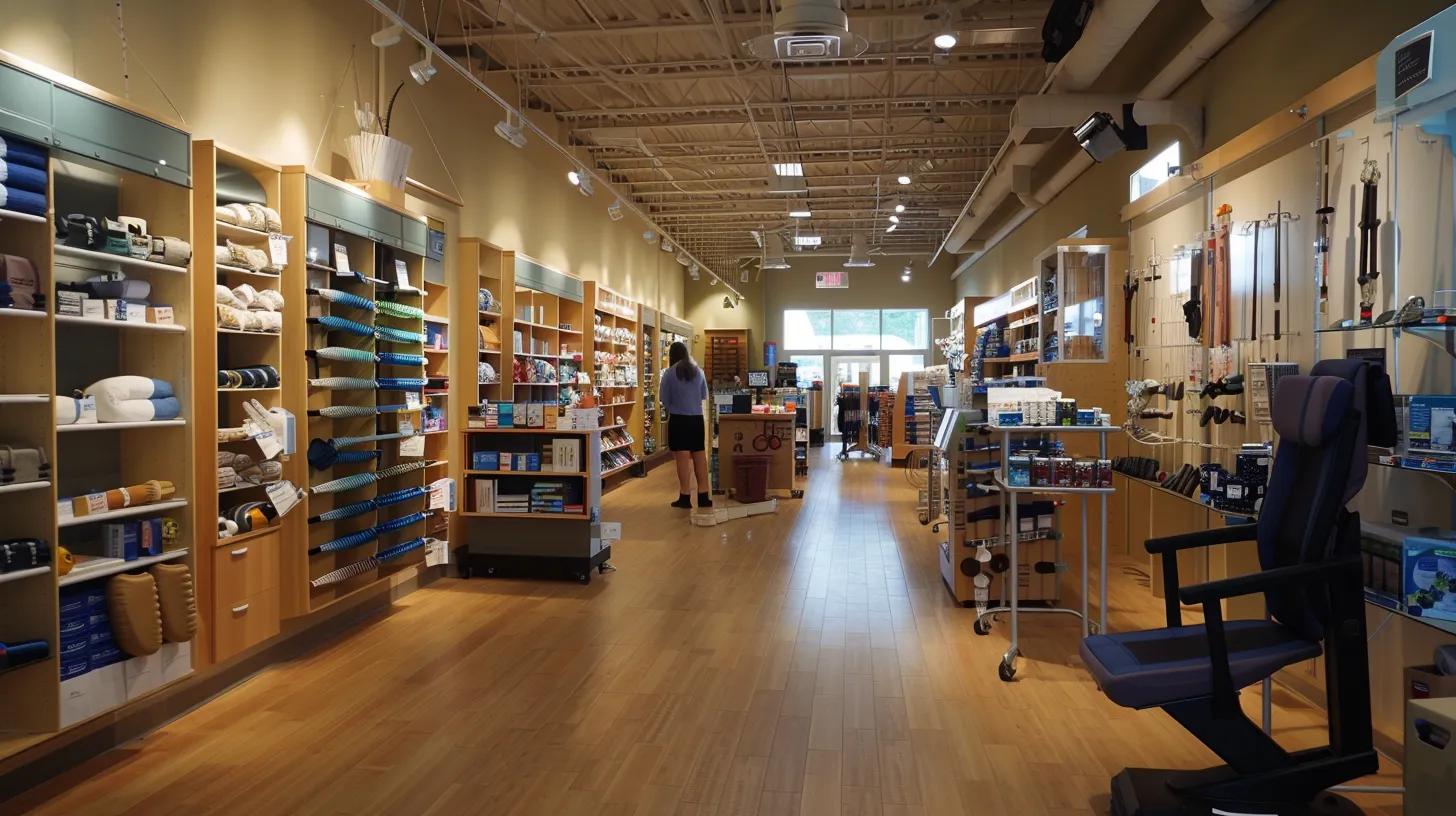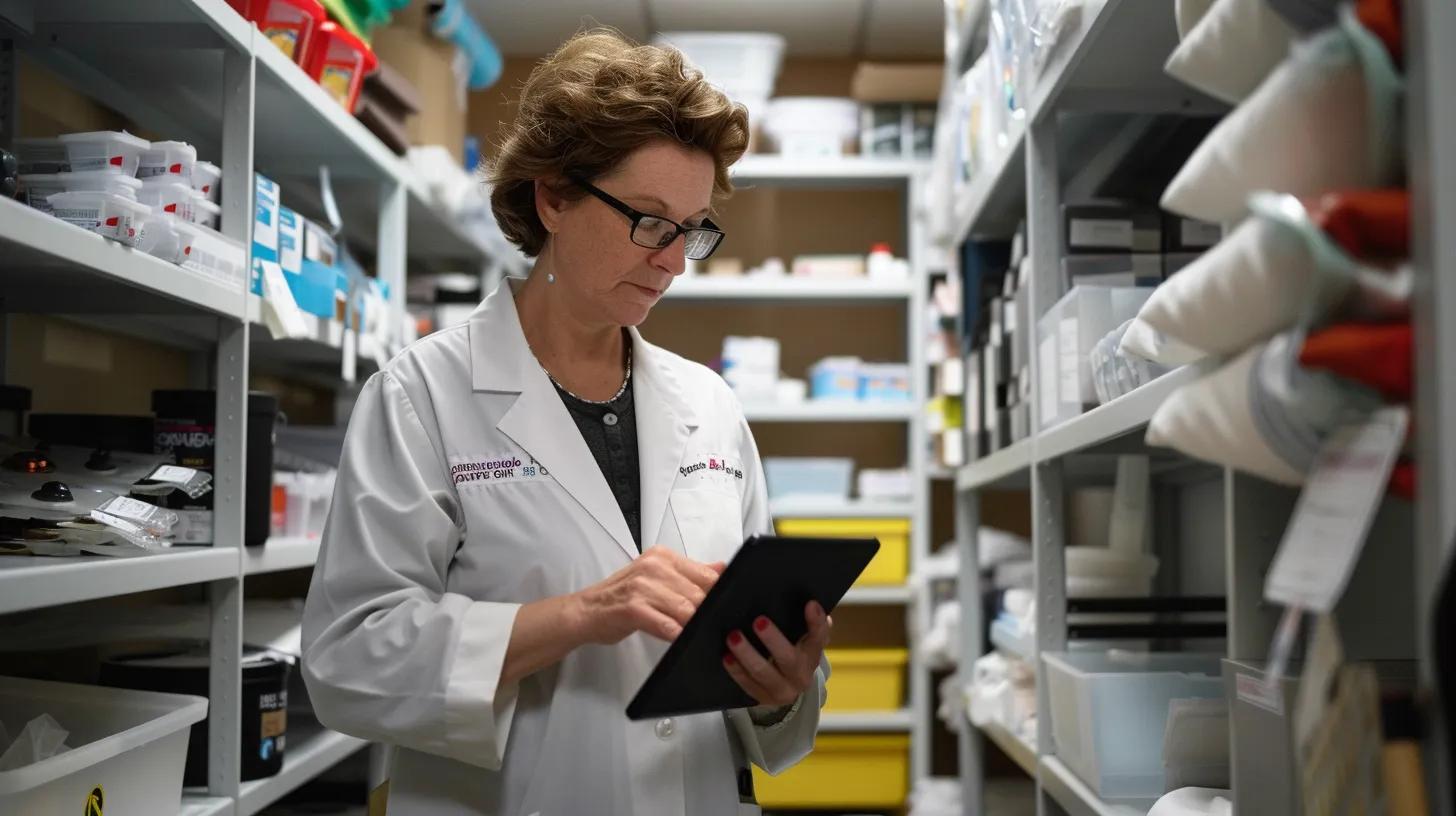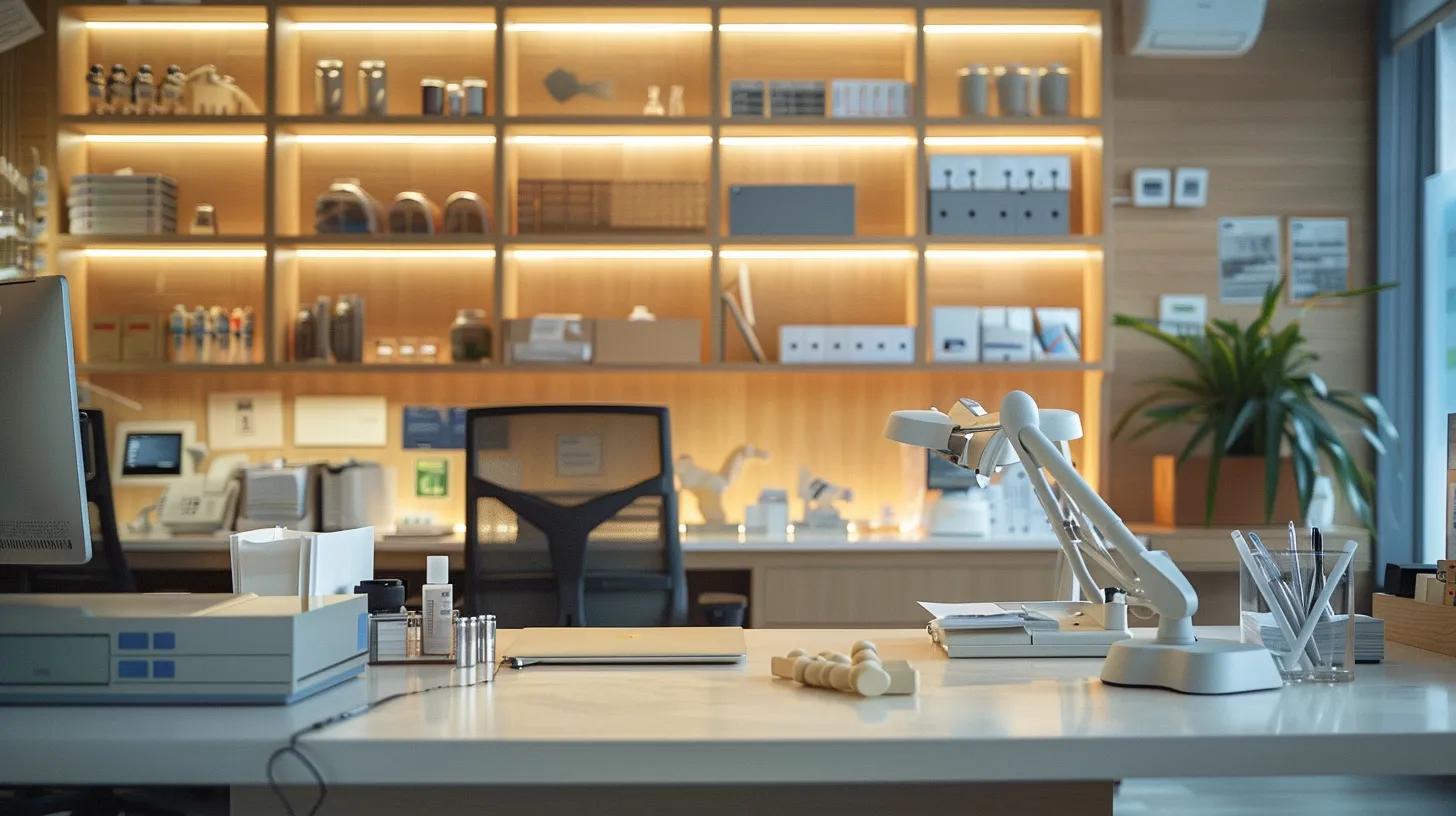Orthopedic Supplies Near Me: A Smart Shopping Guide

Orthopedic Supplies Near Me: Your Essential Guide
Finding the right orthopedic supplies locally can make a tremendous difference in managing pain and enhancing mobility. Many individuals require specific devices and aids to support their recovery or to maintain their independence at home. This guide provides clear insights into identifying your unique orthopedic needs, locating reliable suppliers in your area, and choosing the appropriate products and professional services. With straightforward tips and advice, patients and caregivers can confidently access the equipment necessary for improved quality of life.
Key Takeaways
- Understand which orthopedic products meet your specific medical conditions and needs.
- Use online tools, local pharmacies, and hospitals to locate supply sources.
- Compare providers based on reputation, product range, and customer support.
- Consider factors like fit, material quality, warranty, and cost when purchasing.
- Access professional services for fittings, repairs, and ongoing support locally.
Identifying Your Specific Orthopedic Supply Needs

Determining your orthopedic supply needs begins with a clear step-by-step evaluation of your condition and lifestyle. The process requires understanding both your precise mobility challenges and any localized pain or discomfort areas. It may involve consulting with healthcare professionals to narrow down the choices between custom solutions and off-the-shelf products.
Common Conditions Requiring Orthopedic Products
Many individuals deal with specific conditions such as arthritis, back pain, or post-surgical recovery issues that demand supportive devices for proper healing and function. Each condition may require different types of braces, supports, or mobility aids to alleviate pain and minimize further injury.
Consulting Healthcare Professionals for Recommendations
Medical professionals like physicians, physical therapists, or orthopedic surgeons are essential resources in selecting orthopedic supplies. They provide expert suggestions on which products suit individual medical histories, ensuring that the supplies not only support recovery but also prevent further complications.
Understanding Different Categories of Orthopedic Aids
Orthopedic products come in various categories including mobility aids, braces, supports, and daily living aids. Recognizing these classifications helps consumers select items that target their specific issues, whether it is for alleviating joint pain or providing extra stability during movement.
Determining if You Need Custom or Off-the-Shelf Supplies
Ultimately, deciding between custom-fit devices or standard market-available products depends on your specific needs, budget, and lifestyle. A consultation with healthcare professionals often clarifies if investing in personalized solutions is required over readily available options.
Locating Orthopedic Supplies Near Your Location

Finding reputable orthopedic supply stores nearby involves exploring multiple local and online resources. Consumers should use digital tools and local directories to streamline the process of finding high-quality products within their community.
Using Online Search Tools to Find Local Suppliers
Online search engines and mapping services can quickly reveal nearby medical supply stores. Inputting queries like “medical supply store near me” often returns a list of licensed vendors offering orthopedic devices and related products.
Checking With Local Pharmacies for Orthopedic Sections
Many pharmacies have dedicated sections for orthopedic and mobility aids. Local drugstores provide options ranging from compression stockings to supportive braces. Patients may consult with pharmacists for recommendations based on their ongoing medical needs.
Contacting Hospitals and Clinics for Supplier Information
Hospitals and outpatient clinics often collaborate with reliable vendors and can offer referrals. Inquiring at these facilities provides trustworthy information on suppliers with established credentials and quality products.
Exploring Medical Equipment Rental Services in Your Area
In some cases, renting orthopedic equipment such as hospital beds or mobility scooters is more practical for short-term needs. Medical equipment rental services allow patients to test products and use them during recovery without upfront costs.
Types of Orthopedic Supplies Available Locally

Orthopedic supplies available in local stores encompass a variety of products designed to improve comfort, support proper alignment, and reduce pain. These products help maintain mobility while preventing further injury.
Mobility Aids Such as Walkers, Crutches, and Wheelchairs
Mobility aids significantly enhance the independence of patients with limited movement. These devices are engineered to provide both balance and safety, ensuring that routines are less hazardous.
Braces and Supports for Various Body Parts
Specialized braces support areas such as knees, ankles, or wrists. They stabilize joints, reduce inflammation, and are critical during recovery periods from injuries or surgeries.
Comfort and Support Items Like Cushions and Specialized Pillows
These products offer ergonomic support and pressure relief, essential for individuals spending long hours in bed or seated. They can also improve posture and reduce localized pain.
Daily Living Aids to Assist With Everyday Tasks
Daily living aids include items like grab bars, elevated toilet seats, and shower chairs. These supplies enhance household safety, promoting independence in daily routines.
Compression Garments for Circulation and Support
Compression stockings and sleeves improve blood circulation and reduce swelling, making them ideal for post-surgical recovery and preventive care in patients with circulatory concerns.
Selecting the Right Orthopedic Supplies Provider Nearby

Evaluating potential suppliers is essential to acquiring quality supplies and secure after-sale support. It helps to review customer feedback and store credentials before making a purchase.
Evaluating Supplier Reputation and Customer Reviews
Consumer reviews and testimonials provide valuable insights into a supplier’s performance. Locals can verify that the retailer offers reliable products and an attentive customer service experience.
Comparing Product Range and Availability at Different Stores
A broad product range indicates that a supplier can meet diverse orthopedic needs. Comparing inventories helps identify which vendors offer the specific products needed, such as various sizes of braces and anatomical supports.
Assessing the Knowledge and Support of Supplier Staff
Trained and knowledgeable staff can offer counsel on product selection and proper usage. This guidance is indispensable when making an informed buying decision that affects your health and recovery.
Inquiring About Insurance Coverage and Billing Processes
Discussing insurance options and billing arrangements with the provider prevents unexpected expenses. Many local suppliers work with Medicaid or other insurance programs, making quality care more affordable.
Checking for Delivery Setup and Maintenance Services
Local stores that offer prompt delivery, installation, and regular servicing of products add extra convenience. These services ensure that supplies are set up correctly and maintained over time, reducing long-term complications.
What to Consider When Purchasing Orthopedic Supplies in Your Vicinity

When investing in orthopedic supplies, consumers should consider several factors to ensure that they receive safe and effective products. This approach minimizes discomfort and maximizes therapeutic benefits.
Ensuring Proper Fit and Sizing for Braces and Supports
Proper fit is essential for the functionality of braces and supports. Ill-fitting products can worsen pain or lead to new injuries; hence, precise measurements should be taken, and fitting sessions arranged when possible.
Understanding Product Materials Quality and Durability
High-quality, durable materials extend the lifespan of orthopedic products. Verifying that the devices meet medical-grade standards guarantees both comfort and long-term support.
Reviewing Warranty and Return Policies Before Buying
Return policies and warranties protect consumers from defective products. Before purchasing, it is wise to understand the store’s policies on exchanges and repairs, ensuring that your investment is safeguarded.
Asking About Proper Usage, Care, and Maintenance of Supplies
Supplier guidance on product care greatly affects performance and longevity. Detailed instructions on cleaning, wiring, or proper storage are often provided by experts during a routine discussion.
Factoring in Costs and Comparing Prices From Local Vendors
Comparative shopping across local providers allows consumers to balance cost with quality. Affordable pricing, combined with quality service, results in significant savings and better outcomes for patient health.
Accessing Orthopedic Supplies and Professional Services Close to Home

Beyond purchasing supplies, accessing professional healthcare services locally is key to effective treatment. Local medical professionals not only provide the equipment but also offer necessary follow-up care.
Finding Certified Orthotic and Prosthetic Professionals Locally
Certified doctors and technicians ensure that your orthotic devices are correctly fitted and customized. Local directories often list only trusted providers with years of expertise and high approval ratings.
Scheduling Fittings and Adjustments for Your Orthopedic Devices
Proper fittings are essential to the therapeutic success of orthopedic supplies. Regular adjustment sessions help maintain alignment and adapt devices to changes in the patient’s condition over time.
Obtaining Repairs and Maintenance for Your Equipment
Local service centers frequently offer timely repair and maintenance services. This ensures that once purchased, your devices continue to function effectively and safely.
Learning About Training and Education on Supply Usage
Some suppliers provide educational seminars and training sessions on how to use orthopedic aids properly. These sessions empower patients and caregivers to maximize benefits while reducing the risk of misuse.
Seeking Ongoing Support From Local Orthopedic Specialists
Continuous support from specialized professionals helps address any issues that arise during the course of usage. Regular follow-up appointments and prompt solutions lead to improved long-term results.
Final Thoughts
In summary, identifying and purchasing orthopedic supplies close to home involves a thorough evaluation of your needs, careful selection of suppliers, and a well-informed approach to product usage. With local resources readily available, patients can find devices that support daily living, alleviate pain, and enhance mobility. Considering factors like fit, material quality, and supplier reputation ensures that the equipment provides lasting benefits. This guide encourages readers to seek local expertise and make informed decisions for better orthopedic health and independence.
Frequently Asked Questions
Q: How do I determine which orthopedic supplies I need? A: Start by consulting with a healthcare professional who can assess your condition and recommend whether mobility aids, braces, or other supports are necessary based on your specific pain and recovery needs.
Q: Where can I find reliable orthopedic supply stores near me? A: Use online search tools, local pharmacy directories, and hospital referrals to locate reputable stores. Additionally, check customer reviews and inquire directly to get the most accurate recommendations.
Q: What should I consider before purchasing a brace or support? A: Ensure the product fits properly, is made from high-quality materials, has a reasonable warranty, and that the provider offers support services for adjustments and maintenance. It is also useful to compare prices and reviews.

